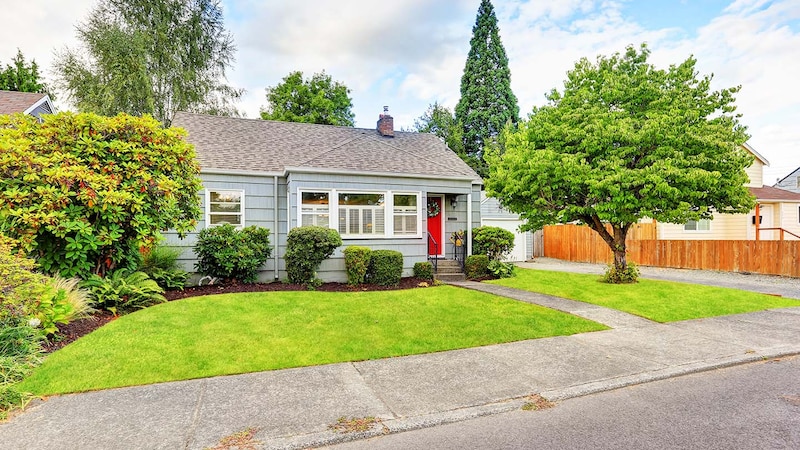Your guide to 15-year fixed mortgages

Quick insights
- A 15-year fixed mortgage has a loan repayment term of 15 years and a fixed interest rate that won’t change over the life of the loan.
- 15-year mortgages usually have higher monthly payments than their 30-year counterparts, but you should pay less in interest and build equity faster.
- Because the monthly payments are higher, it can be more difficult to qualify for a 15-year mortgage versus a 30-year home loan.
A 15-year fixed mortgage is called a “15-year” mortgage because that’s the length of the loan repayment term. They’re often compared to 30-year mortgages, which have a term of 30 years. Together, they’re the most common home loan terms. Let’s take a closer look at how 15-year fixed mortgages work and the potential benefits and risks that come with the shorter term.
What is a 15-year fixed mortgage?
A 15-year fixed mortgage is a home loan with a fixed interest rate and a 15-year repayment term. In short, this means the interest rate and monthly payment will not change over the life of the loan. If you make your monthly payments in full and on time, the loan will be paid off in 15 years.
The name describes both the loan term and how the interest rate will work. Fixed-rate mortgages are sometimes compared to adjustable-rate mortgages (ARMs) because those are the two different ways interest rates can be calculated on a mortgage.
How does a 15-year fixed-rate mortgage work?
With a fixed-rate mortgage, the interest rate will stay the same over the life of the loan, regardless of what happens to mortgage rates or the markets overall. Each monthly payment that you make will apply to principal and interest, with more going toward the principal over the life of the loan.
Because the loan term on a 15-year mortgage is shorter, your monthly payment will be higher than it would be with a 30-year loan. However, interest rates are usually lower. So, with the shorter loan term, you should pay less in interest and build equity in the property faster.
15-year fixed mortgage requirements
The basic requirements to qualify for a 15-year mortgage will be similar to those of a 30-year mortgage. Your lender will review factors like:
- Credit score
- Debt-to-income (DTI) ratio
- Down payment
- Income history
- Closing costs
The lender may also ask for additional documentation, like bank statements or tax returns. The exact thresholds for these requirements will vary based on the lender you choose and the type of loan. However, the same general underwriting guidelines will apply.
Advantages and risks of a 15-year fixed mortgage
Whether or not a 15-year mortgage is right for you will come down to your specific financial circumstances and goals. That said, we’ve compiled a general list of potential pros and cons to help you decide if this is a loan option you may be interested in pursuing.
Pros
- Save on interest: Interest rates are historically lower for 15-year terms vs. 30-year terms.,
- Build equity faster: Amortization timetables are accelerated on a 15-year loan because of the shorter timeline. This helps build equity, which can be particularly useful if you’re interested in refinancing down the road.
- Pay off loan sooner: If you make all your payments in full and on time, you can own your home outright in less time, which can offer greater financial flexibility.
Cons
- Higher monthly payments: Shorter loan terms generally come with higher monthly payments. Try out our mortgage calculator to see how much the loan term can affect your payment. The difference can be considerable.
- Harder to qualify: Because of the higher monthly payment, some borrowers may find it more difficult to qualify. The payments could raise your DTI ratio above a lender’s acceptable threshold.
- Could affect house budget: If you’re struggling to qualify for a 15-year mortgage because of the impact on your DTI ratio, you may need to lower your potential purchase price, depending on how much you need to borrow.
How to apply for a 15-year fixed mortgage
If you’re interested in applying for a 15-year fixed mortgage, here are some recommended next steps.
1. Research loan types
There are different types of 15-year fixed rate mortgages you can apply for. Here are some of the most common:
- Conventional loans
- U.S. Department of Veterans Affairs (VA) loans
- Federal Housing Administration (FHA) loans
- U.S. Department of Agriculture (USDA) loans (Chase does not offer USDA loans at this time.)
Before moving forward in the process, it makes sense to decide which of these loan options you’re interested in pursuing. You can also come back to this step after you talk with lenders to get a better sense for your options.
2. Shop lenders
Choosing a lender can be as important as deciding on the type of mortgage and property you’re interested in purchasing. Ideally, they’ll be a strategic partner who can help you get the loan to purchase the home while offering strategic counseling throughout the process.
Shopping lenders also allows you to find out if they have any promotional offers that might be beneficial—for example, putting cash toward closing on your behalf.
3. Get preapproved
Getting preapproved will allow the lender to start diving into your financial information and can give you a better idea of how much house you can afford. Preapproval can also make your offer more appealing to sellers, as it shows you’re a serious prospective buyer who’s been vetted by a lender.
Additionally, getting preapproved can give you peace of mind that your application has a good chance of being approved once you find the right property.
4. Find the property and make an offer
To formally apply for a 15-year fixed mortgage, the lender will need to know the property address and the purchase price. This will allow them to show you exact numbers related to your monthly payments instead of estimates. The purchase price and your down payment will determine how much you need to borrow.
5. Formally apply for the loan
Once you’ve reached an agreement with the seller on the purchase price and you have your funds in order, you’re ready to officially apply for the loan. Please be prepared to provide your lender with any additional information or documentation they may request.
15-year fixed mortgage FAQs
Can you refinance to a 15-year mortgage?
Yes, it’s possible to refinance from a longer loan term to a 15-year mortgage. However, keep in mind that you’ll owe closing costs again when refinancing, and moving to a shorter term could increase your monthly payments.
Can first-time homebuyers get a 15-year mortgage?
Yes, first-time homebuyers are eligible to apply for 15-year mortgages. So long as they can meet the loan requirements, the lender should be able to approve them for the loan.
Can you pay off a 15-year mortgage early?
Yes, it’s possible to pay off a 15-year mortgage early, provided you can afford to do so. Just check with your lender to ensure there are no prepayment penalties if you do.
Do you have to make a larger down payment for a 15-year mortgage?
The down payment requirements won’t necessarily be higher for a 15-year mortgage versus a 30-year mortgage. However, putting more money down will decrease the size of the loan, which can help offset the higher monthly payments that come with a shorter loan term.
In summary
The 15-year fixed mortgage is a popular option because it allows borrowers to save on interest and build equity in their home faster. However, it comes with the tradeoff of higher monthly payments, which can make it more challenging to qualify for. If you’re interested in pursuing one, reach out to your lender to learn more.



